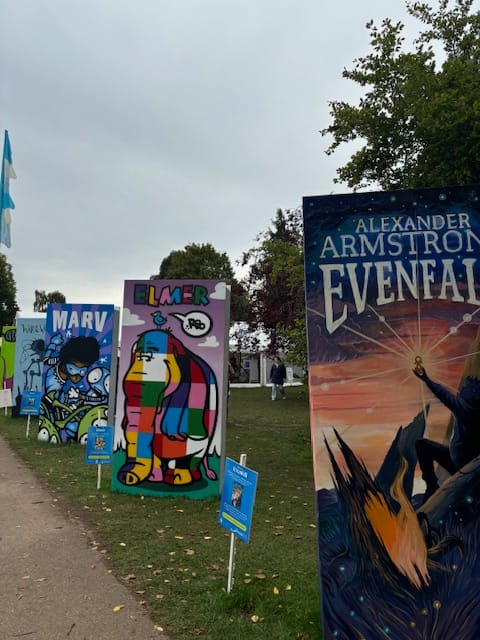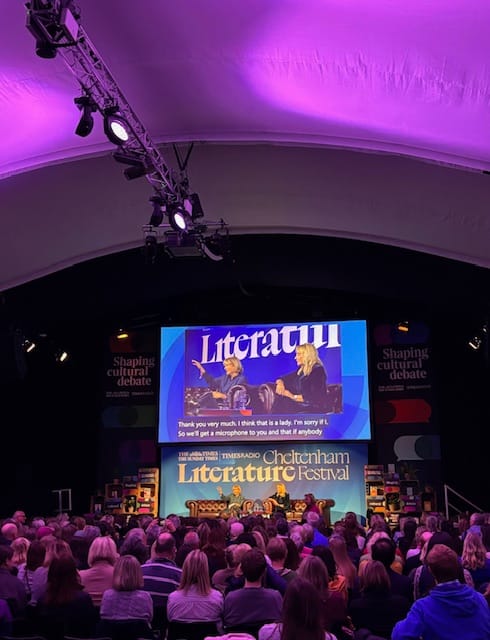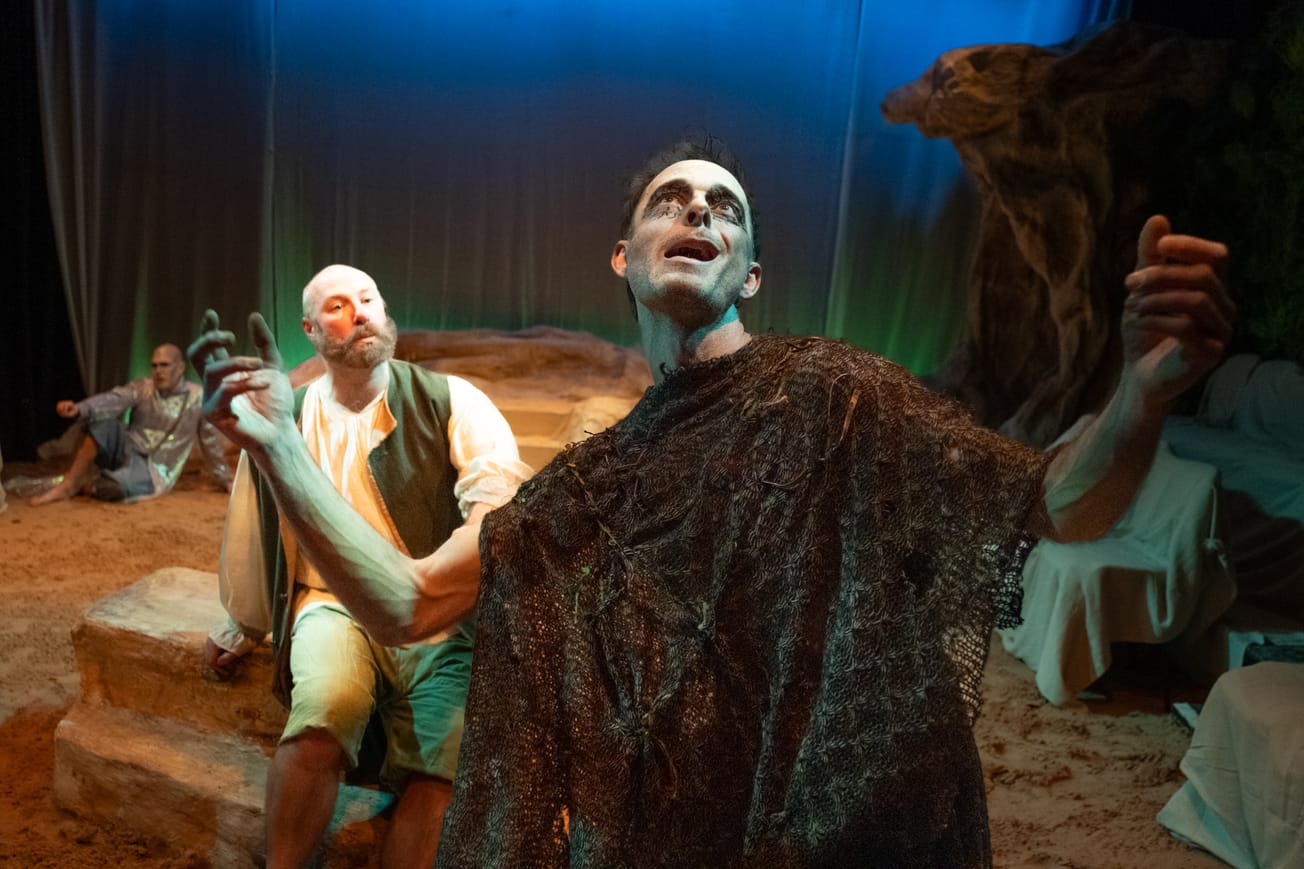One cold Autumnal Sunday, when all my housemates were still nestled in their beds, I left for the Cheltenham Literature Festival. Some building works meant the route wasn’t as simple as I’d initially thought, but after a walk, train-ride, bus-journey, and another walk, I reached the bustling site.
Children were running around giant signs displaying book characters, mothers and daughters were warming their hands and insides with coffees and teas, a long line of people were waiting for the doors to be opened to their next talk, and I took that as a sign to rush to mine.

My first event was a celebration of 75 Years since the publication of Orwell’s 1984, with a panel of Dorian Lynskey and D.J. Taylor interviewed by Claire Clark. I found my seat - next to a regular festival-goer. We discussed his warmth for the festival, and love of Orwell’s work. He’d been coming since 2002 and said you might not know much about the book you’re going to see a talk on, but when you leave, your mind will be full of questions and ideas. The lights went down, and the speakers walked onto the stage.
I wasn’t quite sure what to expect. Would it be like a lecture? Or perhaps like a celebrity interview? The answer: completely and wonderfully different.
The pair shared humorous and insightful comments on Orwell’s life and work, ranging from anecdotes about his dog named Marx (before he’d even read any Marx), and thoughtful comparisons between his journalistic work and that of fiction. It felt like I was a fly on the wall to three passionate readers. They discussed Orwell’s fascination with psychology which far surpassed any interest in science, despite people commenting on the science-fiction elements of the novel. The spoke of context in which he was writing - fears of the cold war, for instance. They even mentioned Huxley’s (author of Brave New World) visit to Orwell in hospital, where he cheekily said 'I like your novel but mine is better because it might actually come true.'
I leapt for my notes page when the hour-long talk concluded, to write down everything I could remember. The man sat next to me asked if I enjoyed it. I nodded and let out an excited ‘That was amazing!’
The festival was spread over may buildings. The 1984 talk was in the Cheltenham Grand Hall but I found myself wandering to the Montpellier Gardens because someone told me this was where Waterstones had set up a temporary bookshop, there were also free events (like wellness journalism), and cafes set up in pride of place. After browsing all the books, catching the end of a spoken word set, and finishing a book I’d brought with me to the festival (Bellies by Nicola Dunan), it was time for my next talk.
This was a Sunday Times Culture Interview with Helen Fieldings, the author of Bridget Jones. This venue was even bigger than the last. I was sat on tiered seating, staring expectantly at the sofa-lined stage. As Helen walked on, she received a huge applause from the crowd which ranged from young girls to older women all who’d resonated with the candid, hilarious, loving character of Bridget.

Helen spoke about her conception of the novel. When she was in her thirties, working at The Independent, single women in their thirties were asked to write columns about their lives. She was hesitant at first, then wrote under a pseudonym. Once people began loving her writing, she couldn’t hide it anymore. These columns worked their way into a novel, after other novels she’d been writing weren’t getting the success she’d hoped. Bridget Jones flourished into the adored franchise it is today.
Helen is just as funny in real life as she is in her writing. A girl in the audience asked her whether she had any embarrassing Bridget moments in her own life. She said 'Of course!' Then began to detail a day in the summer. She was wearing her underwear in the garden, trying to catch a tan when the Amazon man arrived…She put on a towel but then locked herself out of her home. Keyless, she went to her neighbour. She ended up in his back garden, nattering away, wearing just a towel, when his wife showed up. Helen had to explain to her friend why she was only wearing a towel, chatting to her husband. Laughter waved across the audience, as everyone realised that embarrassing Bridget moments really are universal.
The talk ended with laughter and I had to make my way home. As I rode the bus, I thought on how incredible the day was. It reinvigorated my love for reading, and, as the man I’d met had predicted: it left my brain buzzing with many ideas and questions.
If you have the opportunity, I’d hugely recommend visiting this festival, or another literary talk this year.









